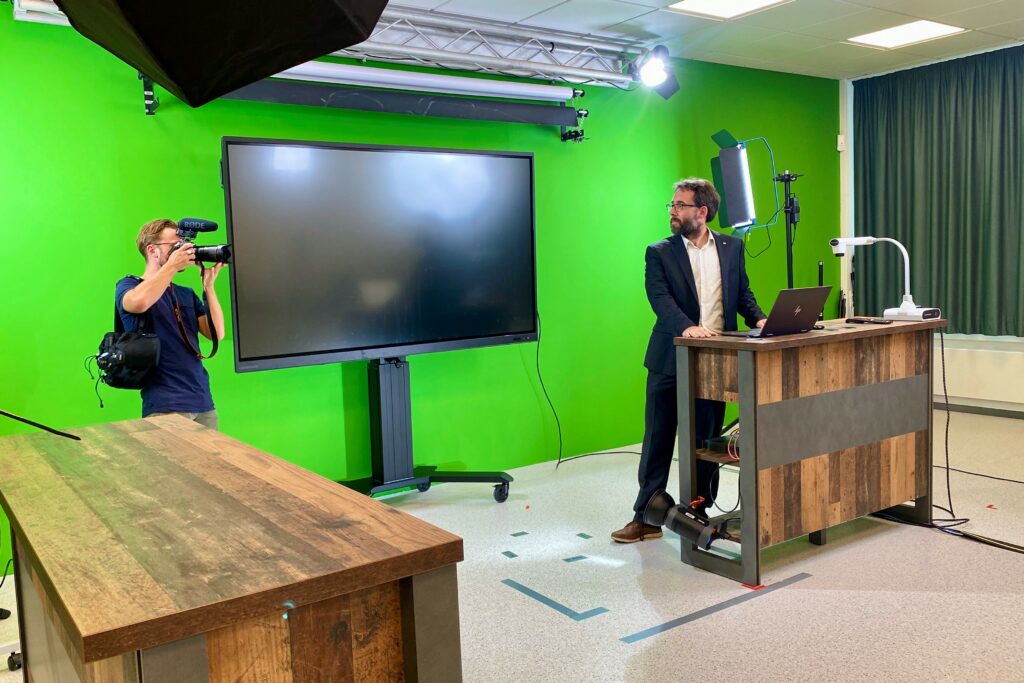Lübeck Office for Economic Development visits Campus Hearing Acoustics

The Campus Hearing Acoustics is an important economic factor for the city of Lübeck. Hence a media team of Lübeck’s Office for Economic Development (Wirtschaftsförderung Lübeck) dropped by for a visit in August, to report on their website and social media channels about Germany’s central vocational training facilities in the hearing acoustics branch and the world’s biggest center for continued education in this field, right here in the Hanseatic city of Lübeck.
In a guided tour, Lucas Braun, Wirtschaftsförderung Lübeck GmbH, his photographer and a cameraman, had the opportunity to capture impressions of the Campus Hearing Acoustics and its modern equipment, including 2000 hearing systems of all suppliers. Moreover, they got an insight into practical training sessions in the six otoplastic labs with over 100 work places, all equipped with CAD and 3D printers, which allow for approx. 40,000 ear molds for practice purposes to be manufactured every year. Stephan Fuesers, Director of Studies at the Federal Vocational School for Hearing Acousticians (LBS), Michael Skwarciak, Public Relations spokesperson for the Federal Guild of Hearing aid Acousticians, Dr. Frederick Hahn, responsible for further and continued education at the Academy of Hearing Acoustics (afh), as well as Marcus Nissen und Malte Roberz, Head and Deputy Head of afh Education Management, informed about learning and working on the Campus Hearing Acoustics in a relaxed atmosphere. Apprentices were also interviewed.
The unique inter-campus cooperation of LBS and afh on the Campus Hearing Acoustics plays a vital role for Lübeck as a location for education. More than 20,000 hearing aid professionals have successfully completed their vocational training with the journeyman/woman examination, 5,000 have passed the Master Craftsman/woman exam in Lübeck. Currently there are approx. 3,200 apprentices in the Hearing Acoustics craft, about 1,000 of them attend classes on Campus Hearing Acoustics every day for their vocational school or industry-wide training. Accommodation is provided in seven boarding houses with approx. 1,000 beds on Campus (i.e. 220,000 overnight stays per year). The warm water supply on Campus Hearing Acoustics is partly secured through sustainable, eco-friendly solar energy. The campus canteen, which will soon be further extended, will then provide 500,000 meals per year. The Campus Hearing Acoustics cooperates with a catering partner, which is committed to the principles of the UN Global Compact.
With a team of around 130 teachers, lecturers and other administrative staff, the Campus Hearing Acoustics is an attractive employer in the region.